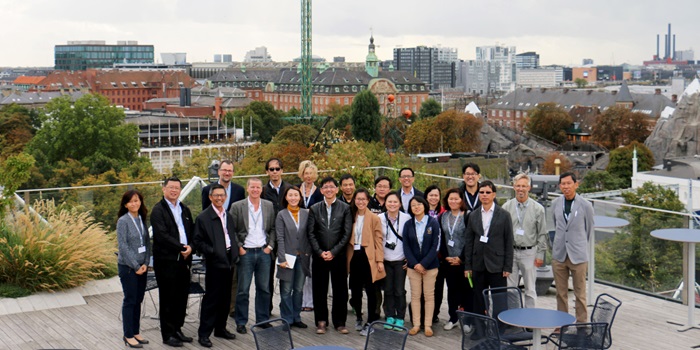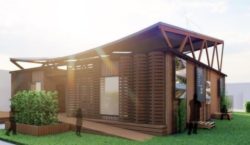A delegation of researchers, public authority representatives, and business representatives from the Building and Construction Authorities (BCA) in Singapore visited DTU, Technical University of Denmark to learn about the Danes’ approach to sustainable, green construction in Denmark.

The delegation was particularly interested in how to integrate the management of water, waste and energy production into intelligent buildings and infrastructure.
“Denmark is well known as a pioneer in the development of sustainable, green construction. I was surprised that Singapore was looking towards Denmark in this context, because Singapore is highly efficient, well organised and economically strong. Still, they wanted inspiration from Denmark and we were, of course, happy to welcome them,” says Alfred Heller, Associate Professor at DTU Byg and Deputy Centre Manger of the Centre for IT-Intelligent Energy Systems in Cities (CITIES), which conducts research into the development of intelligent buildings and infrastructure that are able to contribute to sustainable development.
The development of smart cities is a growth area in both Denmark and Singapore. With an area of just 719 km2 and a population of roughly 5.7 million, Singapore has a space problem—to put it mildly. By way of comparison, the area of Denmark is 43,561 km2.
Consequently, Danish solutions cannot be directly transferred to Singaporean conditions. There are also differences in climate. The temperature in Singapore is often 30 degrees Celsius or more, and the humidity is very high. The temperature of the soil and the sea water is over 25 degrees all year round.
Living labs are one approach that can be adapted to the needs of Singapore. These are experimental facilities in which new solutions are developed and demonstrated in a living urban landscape.
To function well, a living lab depends on good collaboration between research, authorities, and business. DTU has good experience of this from several living lab projects, including DTU’s Smart Campus, where students and researchers can work freely, Danish Outdoor Living Lab, EnergyLab Nordhavn, and Smart City in Lyngby-Taarbæk Municipality. Niels Axel Nielsen, Senior Vice President at DTU, explains that this method of working will be right for what Singapore plans to do.
“As part of the ‘Smart City World Labs’ consortium, DTU is working closely with Singaporean research institutes, public authorities and the business community to establish living labs in Singapore. The objective of the partnership is to reinforce the potential for both Denmark and Singapore to become leaders in the field of smart city solutions that are able to help create more sustainable cities,” Niels Axel Nielsen explains.
The visit from Singapore was also used to talk about the opportunity to develop an MSc course in Architectural Engineering at DTU that is tailored to the needs and challenges in Singapore. One of the benefits of such a course would be the opportunity for joint projects between students and researchers from the two countries.
Source: DTU

